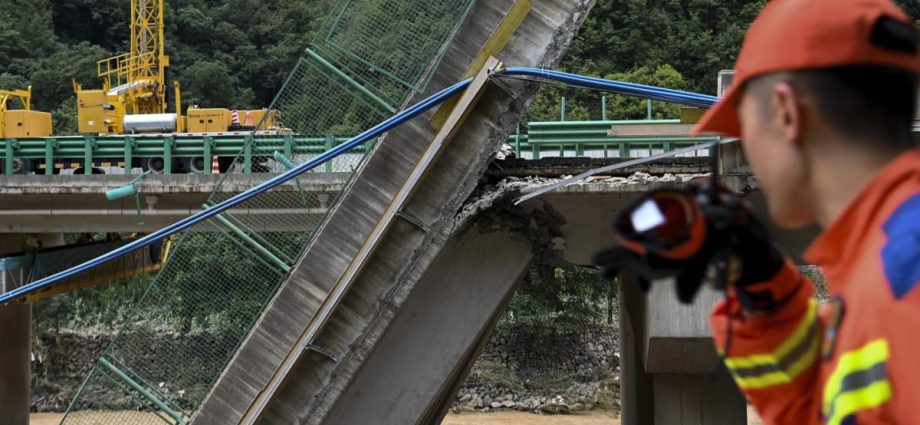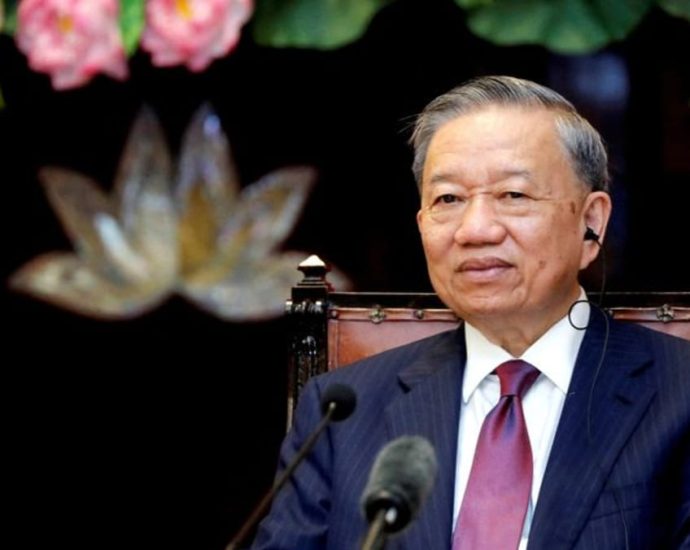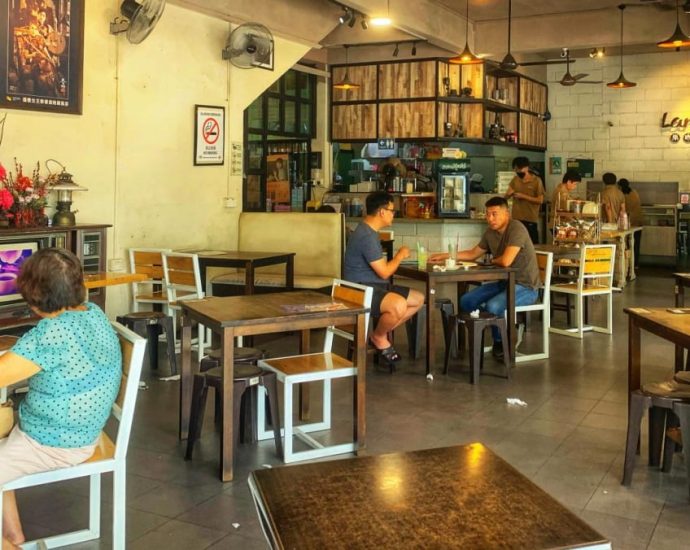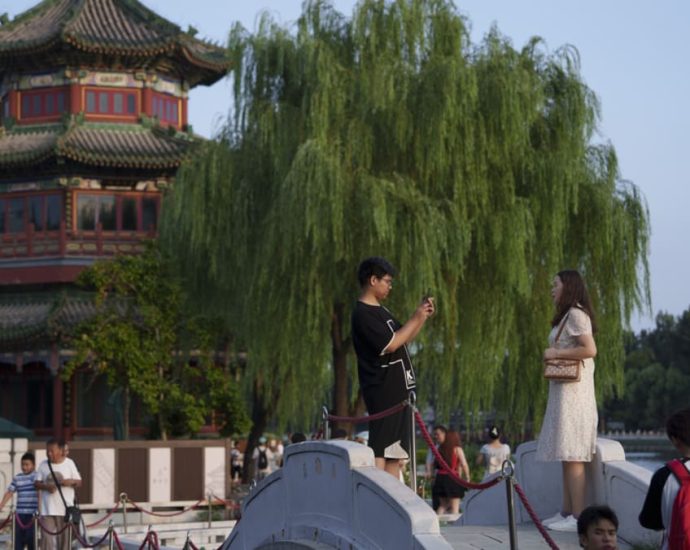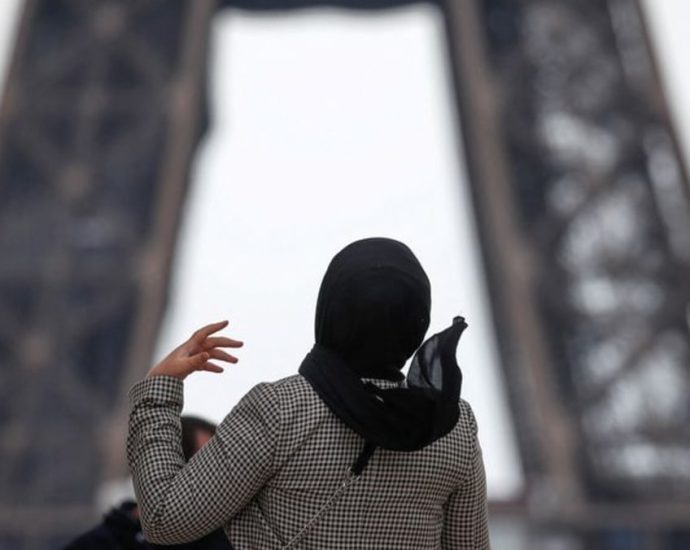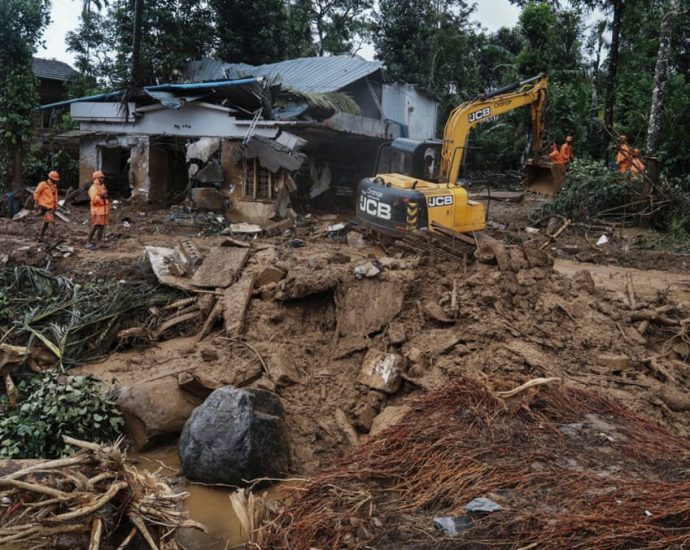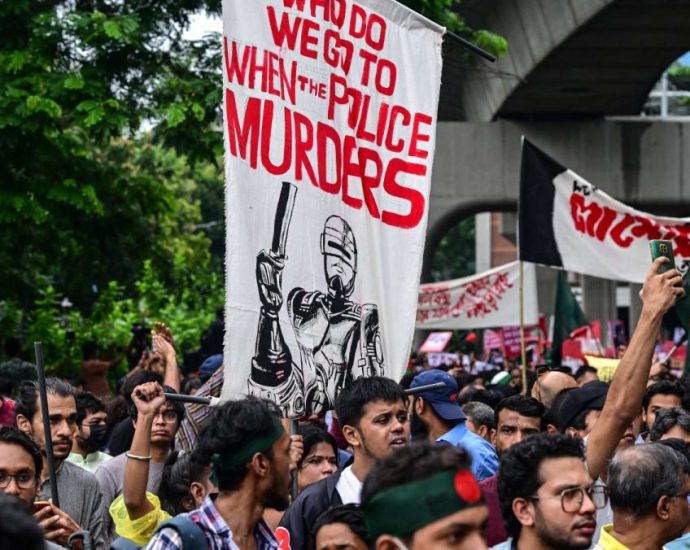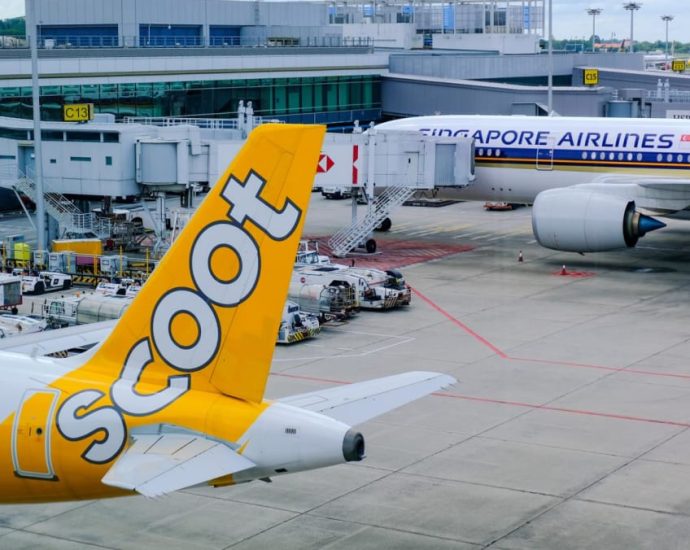At least two dead after landslides in southwest China
BEIJING:  , Landslides in southwest China on Saturday ( Aug 3 ) destroyed homes and caused a highway bridge to collapse, killing at least two people and leaving around 17 others missing, authorities said. State broadcaster CCTV said “local hill streams and landslides” swept aside part of Ridi community inContinue Reading

